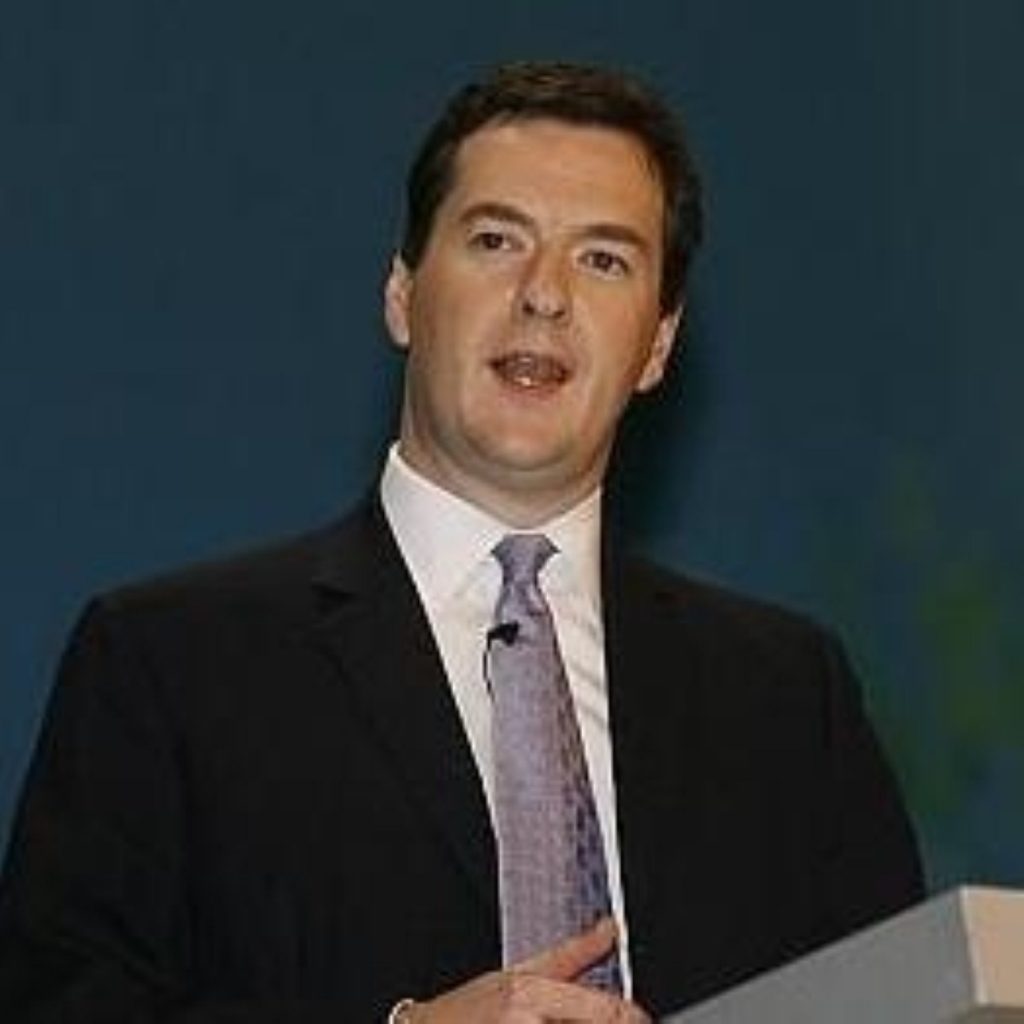Calls grow for Osborne inquiry
The Liberal Democrats have added their voice to Gordon Brown’s call for an investigation into George Osborne’s relationship with Russian billionaire Oleg Deripaska.
Lib Dem home affairs spokesman Chris Huhne has written to the chair of the Electoral Commission demanding a full investigation in to the affair or a clarification of the law.
The Commission has already rejected Mr Huhne’s request.
A Commission spokesman said: “We have received a letter from Chris Huhne. Our position remains the same, that we have seen no evidence of any offence.”


Sam Younger had already said he did not believe Mr Osborne had a case to answer, but Mr Huhne was calling for him to pay particular attention to section 61 (1) of the Political Parties, Elections and Referendums Act 2000.
That section says it is an offence to facilitate a donation from an ineligible donor through “concealment or disguise” – such as a British owned company.
The Tory party’s own version of events admits Mr Osborne and Andrew Feldman, Tory chief executive, discussed how a donation may be possible but decided against it.
Critics say this discussion, conducted during a week when the two had both been meeting Mr Deripaska, points to an offence under the Act.
“The law suggests that George Osborne and Andrew Feldman have been sailing very close to the wind,” Mr Huhne said.
“The Electoral Commission should either launch an inquiry or clarify its interpretation of the law.”
Meanwhile Liberal Democrat transport spokesman Norman Baker has written to the parliamentary commissioner for standards to ask for clarification on hospitality rules.
“It is important we establish the rules for MPs accepting hospitality from third parties,” Mr Baker said.
“Mr Osborne, in a massive lapse of judgement, accepted hospitality from a financier who is potentially in a position to benefit from discussions with the shadow chancellor.”
The letters come as the Conservatives’ record on foreign donations faces sustained scrutiny today.
It has been revealed the Conservatives accepted a payment from an American banker’s company immediately after rejecting an identical amount from the banker herself.
Robin Saunders, a former banker for WestLB and one of the City of London’s best-known women, offered to pay the party £6,600 to attend the Conservative ball in February, but she was rejected because she is not a British voter.
Once she replaced the cheque for one from her UK investment company Clearbrook Capital, however, the party accepted the donation.
The story highlight the comfort with which the Conservatives appear to be accepting donations from British firms, even when there are strong reasons to believe they are being used as agents for foreign nationals.
Further evidence of donation grey areas makes Mr Osborne’s position more tenuous. If he is to remain in his job he needs the story to stay out of the headlines.
A spokesman for Miss Saunders told the Financial Times: “The Conservatives pointed out that she had made the donation in the wrong way. She recognised the error and sent a Clearbrook cheque,” the spokesman added.
In a separate development a Labour MP tried to bring up the issue in the Commons today, but was prevented from doing so by speaker Michael Martin.
David Winnick tried to clarify the laws around Mr Osborne’s behaviour with Sir Peter Viggers, who answers on behalf of the Electoral Commission.
“In view of the allegations which have been made about the shadow chancellor, wouldn’t it be appropriate for the Electoral Commission to investigate accordingly?” Mr Winnick asked.
Mr Martin then intervened, saying: “The shadow chancellor isn’t in the chamber. Did you approach him to say you were going to make this statement or ask this question?”
Mr Winnick replied: “No, of course not.”
Mr Martin said: “Well you should. You’ve been here long enough to know the courtesies of the House.”
MPs are meant to inform their colleagues if they intend to question their behaviour or actions in the Commons, although it is a convention to do so, not a rule.
The continued developments, although relatively minor, will worry Mr Osborne, who had good reason to be cheerful this morning.
Questions had been raised about the wisdom of Gordon Brown’s intervention and there were signs that Nathaniel Rothschild was willing to call a truce.
A source close to Mr Rothschild, the man who accused Mr Osborne of soliciting donations from a Russian billionaire, said he was willing to let the matter drop after two days of negative headlines put extraordinary pressure on the shadow chancellor.
But there were warnings that if the Tories actively contradicted Mr Rothschild’s account he will launch a new attack.
“If anything is put out that in any way contradicts what he has said, Nat will come back,” a source close to Mr Rothschild told the Guardian.
“This is not a white flag of surrender. He dropped his bombshell because he was angry. This is not a campaign to get George.”
Mr Rothschild is said to have written witness statements from two individuals – one of whom is James Goodwin, former adviser to president Bill Clinton – corroborating his version of events.
The prime minister’s suggestion of a probe into the affair seems to have backfired, with Downing Street sources unsure of who would conduct it.
The Electoral Commission said the affair does not fall under its jurisdiction while the Parliamentary Standards Commission said it had not received a complaint against Mr Osborne.
But there was evidence of disgruntlement among grassroots Conservatives, with Richard Cowling, an Aberdeenshire councillor, telling the Times: “Truthful or not, it has already damaged him, probably to the extent where he will have to pull the plug – he’s not going to be able to disprove it.
“It’s damage limitation. It’s up to Mr Cameron whether he shows him the door but it’s looking likely.”









